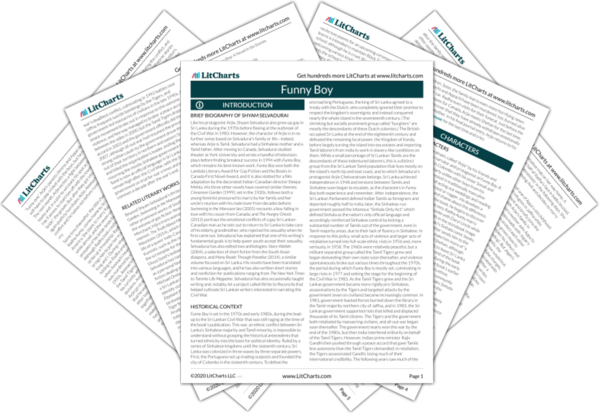The specific and targeted threat against Jegan, no doubt tied to the Banduratne Mudalali just like the bottle-throwing students, suggests that the hotel is reaching a breaking point because of local opposition to Jegan's presence; indeed, if Mr. Samarkoon is right and one of the staff is really responsible, then this suggests that Appa’s organization, and not just his reputation, is beginning to fall apart from the inside. Again, Arjie's family finds nowhere to turn in a situation of injustice, since every institution—
especially the police—is deeply affected by the same anti-Tamil bias that drove the crime.
